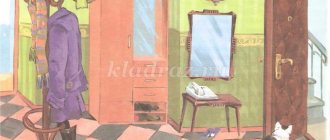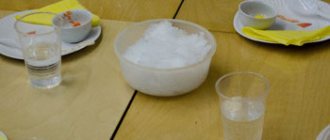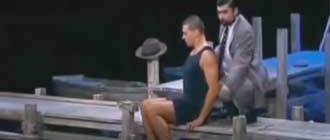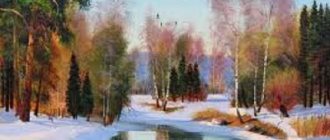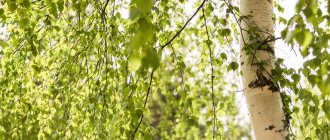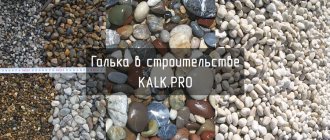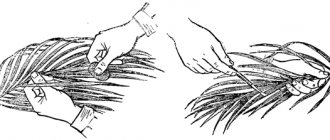Integrated lesson on cognitive development “Herbs that heal”
Goptareva Natalia Viktorovna
Teacher of MBDOU d/s "Romashka"
Explanatory note
Natalia Viktorovna Goptareva, teacher at MBDOU d/s “Romashka”
Integrated lesson on cognitive development “Herbs that heal.”
I developed the outline of an integrated lesson in a mixed-age group based on the methodological recommendations of the following authors: Kuznetsova M.P. “System of comprehensive measures for improving the health of children in preschool educational institutions”; A. Umanskaya and K. Daneyka “play massage”; L.D. Glazyrina “Physical education for preschoolers”, Tikhomirova L.F. "Exercise for every day"
In my notes, I used TSO: children are presented with educational material in a visual, playful form. Bright pictures accompanied by poems and riddles give a positive result in cognitive development. Encourages children to speech activity and mental activity.
One of the main factors in the improvement of pupils’ health is physical activity. Motor activity of a gaming nature and the positive emotions it evokes enhance physiological processes in the body and improve the functioning of all organs and systems. Therefore, I developed a system of gaming activities, which includes:
Physical education minute;
Breathing exercises accompanied by movements (according to B. Tolkachev);
Mobile didactic game “Find the same”;
Play massage.
I also used relaxation (listening to the sounds of nature) and herbal medicine.
I believe that such methods of work are effective in promoting children's health.
Program content
Target:
introduce children to medicinal plants; introduce to a healthy lifestyle.
Tasks:
to develop children’s knowledge about medicinal plants and their role in human life; promote the development of speech in children, their communicative qualities, and develop general motor skills in children.
Methods and techniques:
Visual;
Verbal;
Gaming;
Practical.
Material and equipment:
laptop, projector, screen, presentation “Herbs that heal!”, “flying carpet” layout, audio recording “sounds of nature”, decorations of the forest and medicinal plants, pictures of medicinal plants, chintz pillowcases with a zipper 15x15, collection of herbs ( lemon balm, mint, valerian), plates.
Preliminary work
:
Conducting a survey with parents of pupils on the topic: “the state of your child’s health”;
Involving parents in collecting medicinal plants and sewing pillowcases for herbal collection;
Work of medical staff with parents;
Conversation with children “What should you do if you have a cold?”;
Optional course “Medicinal herbs of Siberia”
Optional course “Medicinal herbs of Siberia”
Explanatory note
Optional classes on the topic “Medicinal Herbs of Siberia” are aimed at practical preparation of children for independent life, at the formation of knowledge and skills that contribute to the strengthening of the health of pupils, the development of skills in caring for their health, and the adoption of a healthy lifestyle.
The elective is designed to solve the following tasks:
— introduce medicinal herbs of Siberia;
— increase knowledge about the beneficial properties of vegetables;
— develop the ability to harvest medicinal herbs;
- teach how to use traditional medicine in necessary situations
— introduce students to folk cosmetics;
- to form moral qualities, adapt to future life in modern society.
The program material is arranged according to the principle of increasing complexity and increasing the volume of knowledge. Consistent study of topics provides an opportunity to systematically expand knowledge and strengthen the practical skills of students.
During the classes, students get acquainted with the medicinal herbs of Siberia and the rules for their preparation and use, expand knowledge about the healing properties of vegetables, their importance for the human body, gain an understanding of the benefits of air and water procedures, treatment with music and sounds, various types of gymnastics and massage, learn to use reserves of your body.
During the classes, time is allocated to study the rules of preparation, preparation, drying, storage of medicinal herbs, with one important
condition - they are prescribed only by a doctor.
By becoming more familiar with the surrounding nature and its healing properties, students learn to treat it with care, and develop the qualities of a thrifty and reasonable owner of nature.
In the sections “The healing properties of berry bushes” and “Health in the garden,” students become familiar with widespread diseases and learn to provide first aid using traditional medicine. Every person may find themselves in an unforeseen situation when, for one reason or another, they cannot count on quick and qualified medical care. And then the knowledge of traditional medicine will help students find the optimal solution.
Particular attention in classes is paid to the prevention of poisoning by mushrooms, berries, and plants. Since most cases of poisoning occur at home, and the victims are children, it is necessary to teach them to adhere to some generally accepted rules that will allow them to avoid an accident, because poisoning is easier to prevent than to cure.
In the folk cosmetics section, students become familiar with the structure and function of the skin, perform practical work on caring for the skin of the face, hands, and hair, using medicinal plants and other folk cosmetics. Aesthetic skills are instilled that will help children look neat, attractive, and beautiful in any circumstances.
The main forms and methods of teaching are conversations, excursions, practical work, experimental and research work, and wide participation of students in school competitions and quizzes.
During classes, time is allocated to reinforce safety rules, develop skills in using heating devices, as well as skills in handling boiling water when preparing decoction, infusion, and vitamin tea. While performing practical tasks, students learn to comply with sanitary and hygienic requirements.
During elective classes, attention is paid to the development of oral and written speech, the practical application of knowledge and skills acquired in Russian language and reading lessons. Theoretical knowledge of program material in biological disciplines and SBO lessons is deepened.
During classes, a notebook is kept in which the necessary information is entered, the rules for preparing infusions, decoctions, and traditional methods of treatment are written down, which can be applied in a future independent life. The results of the annual work of the elective (drawings, projects, albums, newspapers, etc.) are presented in the form of a final exhibition.
The novelty of an optional course in propaedeutics of knowledge about medicinal plants of Siberia. The knowledge and skills acquired in the elective course will stimulate interest in developing the need for a healthy lifestyle.
The relevance of the program lies in the practical application of acquired knowledge and skills by students in everyday life. Studying the curriculum of an elective course increases the level of social competence of students.
Bibliography
- Zalikina L. General care. – Medicine, 1982.
- Complete family directory of family doctor N.N. Polushkina Ripol. Classic Moscow 2007
- S.A. Kabanova “Health Secrets” (encyclopedia)
- I.A. Livshits “Health is nearby”
- Murashko V.V. Textbook for training junior nurses in patient care. Medicine, 1983.
- Milich M.V. Lanchenko S.N. Pozdnyakov V.I. A textbook on special nursing. – Medicine 1983.
- Mukhina S.A. Tarnovskaya I.I. General nursing care. – Medicine, 1989.
- Petrov V.D. Doctor, patient and health.
- Perekopskaya A.G. Sargsyan E.E. Hygiene with the basics of healthcare organization. – Medicine 1972.
- The complete encyclopedia of massage. Leningrad 2005
- “Say goodbye to diseases” Maya Gogulan St. Petersburg “Vector” 2009
- “Medicinal plants of Eastern Siberia” East Siberian book publishing house 1996
- Encyclopedia of Traditional Medicine. Ed. "ANS"
and "Olma Press" 2004.
- Home pharmacy (directory) 2001.
Calendar-thematic plan for the optional course “Medicinal Herbs of Siberia”
2012 2013 academic year
6th grade
| № | Lesson topic | watch | date | Form methods |
General information
(2 hours)
| 1. | Introduction. Ethnoscience. Composition of medicinal plants. | 1 | 7.09 | Travel game |
| 2. | Preparation and storage of medicinal plant materials. | 1 | 14.09 | Pract. Job |
Medicinal plants of Siberia
(3 hours)
| 1. | Variety of medicinal plants of Siberia. | 1 | 21.09 | Story |
| 2. | Medicinal plants of Siberia in the Red Book | 1 | 28.09 | Conversation |
| 3. | Poisonous plants. | 1 | 5.10 | Message uch. |
Healing properties of berry bushes
(7 hours)
| 1. | Raspberries | 1 | 12.10 | Message uch. |
| 2. | Currant. | 1 | 19.10 | Message uch. Pract. Job |
| 3. | Hawthorn. | 1 | 26.10 | Message uch. Pract. Job |
| 4. | Rose hip | 1 | 9.11 | Message uch. Pract. Job |
| 5. | Bird cherry | 1 | 16.11 | Prepared. abstract |
| 6. | Rowan | 1 | 23.11 | Message uch. Pract. Job |
| 7. | Sea buckthorn | 1 | 30.11 | Conversation |
Health in the garden
(7 hours)
| 1. | Variety of vegetables. Useful properties for the human body. | 2 | 7.12 14.12 | Quiz Creative Game “I am a nature connoisseur” |
| 2. | Cucumber | 1 | 21.12 | Message uch. Pract. Job |
| 3. | Carrot | 1 | 28.12 | Message uch. Pract. Job |
| 4. | Garlic | 1 | 11.01 | Message uch. Pract. Job |
| 5. | Beet | 1 | 18.01 | Message uch. Pract. Job |
| 6. | Radish | 1 | 25.01 | Message uch. Pract. Job |
Folk cosmetics
(5 hours)
| 1. | The face is the mirror of the soul. | 2 | 1.02 8.02 | Pract. Job |
| 2. | Cosmetics in the kitchen. | 1 | 15.02 | Pract. Job |
| 3. | Tips for every day. | 2 | 22.02 1.03 | Message uch. Pract. Job |
Interesting things about health
(4 hours)
| 1. | Healthy teeth – healthy body | 1 | 15.03 | Defense of abstracts |
| 2. | Nourishment for eyes | 1 | 5.04 | Conversation Test |
| 3. | How to overcome fatigue | 1 | 12.04 | Practical Job |
| 4. | Good thoughts are the best medicine | 1 | 19.04 | Conversation Role-playing games |
Improvement of the body
(5 hours)
| 1. | Herbal medicine and wellness. | 1 | 26.04 | Conversation |
| 2. | Air and water procedures. | 1 | 3.05 | Stand design |
| 3. | Bath and health. | 1 | 10.05 | Social survey |
| 4. | Aromatherapy. | 1 | 17.05 | Conversation |
| 5. | Home treatment procedures. | 1 | 24.05 | Pract. Job |
Students should have an idea:
— about the diversity of medicinal plants in Siberia;
— on the collection and storage of medicinal plant materials;
— about the variety of methods and techniques for strengthening human health.
Students should know:
— healing properties of the studied plants and vegetables;
-rules for the use of folk remedies in specific situations;
— the importance of herbal medicine for the human body;
- Treatment with medicinal plants is carried out under the supervision of a doctor.
- cosmetics for facial skin care.
Students should be able to:
- prepare an infusion, decoction, healing tea;
— apply the acquired knowledge in life and practical activities;
- use traditional medicine when providing first aid;
-demonstrate acquired skills.
7th grade
| № | Lesson topic | watch | date | Form methods |
General information
(3 hours)
| 1. | Health without drugs | 1 | 3.09 | |
| 2. | Preparation and storage of medicinal plant materials. | 1 | 10.09 | Pract. Job |
| 3. | Siberian taiga – a treasure for human health | 1 | 17.09 | Message uch. |
Useful wild plants
(4 hours)
| 1. | Birch | 1 | 24.09 | Message uch. Pract. Job |
| 2. | Spruce | 1 | 1.10 | Message uch. Pract. Job |
| 3. | Pine, fir | 1 | 8.10 | Message uch. Pract. Job |
| 4 | Cedar | 1 | 15.10 | Message uch. Pract. Job |
Healing properties of herbs
(4 hours)
| 1. | Mint, lemon balm | 1 | 22.10 | Message uch. Pract. Job |
| 2. | Dill | 1 | 12.11 | Message uch. Pract. Job |
| 3. | Parsley | 1 | 19.11 | Message uch. Pract. Job |
| 4. | Nettle | 1 | 26.11 | Designed abstracts |
Berries for health
(4 hours)
| 1. | Cowberry | 1 | 3.12 | Competition of experts |
| 2. | Blueberry | 1 | 10.12 | Message uch. |
| 3. | Blueberry | 1 | 17.12 | Social survey |
| 4. | Bearberry | 1 | 24.12 | School conversation paramedic |
Health in the garden
(5 hours)
| 1. | Potato | 2 | 14.01 21.01 | Message uch. Pract. Job |
| 2. | Onion | 1 | 28.01 | Message uch. Pract. Job |
| 3. | Tomato | 1 | 4.02 | Poster design |
| 4. | Pumpkin | 1 | 11.02 | Defense of the abstract |
Folk cosmetics
(5 hours)
| 1. | Hair is our decoration. | 2 | 18.02 25.02 | Message uch. Pract. Job |
| 2. | Hand care. | 1 | 4.03 | Message uch. Pract. Job |
| 3. | Language is my friend. | 1 | 11.03 | |
| 4. | On the eve of the holiday. | 1 | 18.03 | Master Class |
Interesting things about health
(4 hours)
| 1. | All about honey. | 1 | 1.04 | Conversation |
| 2. | Massage for everyone. | 1 | 8.04 | Pract. Job |
| 3. | Help yourself. | 1 | 15.04 | Pract. Job |
| 4. | Let's talk about stress. | 1 | 22.04 | Conversation Pract. Job |
Improvement of the body
(5 hours)
| 1. | Herbal medicine and its significance. | 1 | 29.04 | Contest | |
| 2. | Prevention of colds. | 1 | 6.05 | Pract. Job | |
| 3. | Home treatment procedures. Sokolechenie. | 1 | 13.05 | Pract. Job | |
| 4. | Autogenic training. | 1 | 20.05 | Pract. Job | |
| 5 | Exercise is your friend. | 1 | 27.05 | ||
Basic requirements for students' knowledge and skills
Students should have an idea:
— about the importance of herbal medicine for human health;
— on the rules for collecting, drying and storing medicinal plants;
-about the importance of massage for maintaining and strengthening human health;
-about self-education using auto-training;
— about the benefits and harms of using traditional medicine.
Students should know:
— healing properties of the studied plants and vegetables;
- use of folk remedies for general symptoms of diseases;
- preventive measures to prevent colds;
Students should be able to:
- prepare meals when caring for the patient;
-perform basic home treatment procedures;
-use traditional medicine for cosmetic purposes;
-apply doctor’s recommendations in practice.
